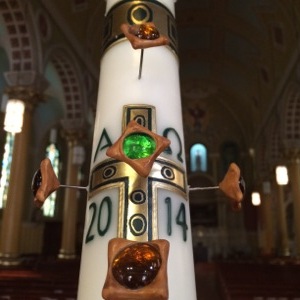
 ELCOME TO Holy Week. For many, preparations have been well underway and are still ongoing. But once the onslaught of liturgies begins, it’s a bit like the morning of a final exam: One can’t study or prepare anymore. Just be in the best mental and physical state possible. For us, that also includes spiritual.
ELCOME TO Holy Week. For many, preparations have been well underway and are still ongoing. But once the onslaught of liturgies begins, it’s a bit like the morning of a final exam: One can’t study or prepare anymore. Just be in the best mental and physical state possible. For us, that also includes spiritual.
So, why do we work so hard to prepare? Beyond the technical preparations, musical and liturgical, there are five essential things music directors should remind themselves, their choirs and instrumentalists:
1. WE WILL AFFECT PEOPLE IN WAYS WE WILL NEVER KNOW.
There are those who walk through the doors of our churches who carry burdens unknown to us. Sorrow, struggle, and suffering permeates our fragile existence, but so does joy. There is great opportunity for comfort, compassion and love. In prayerful, loving song, you may forever change the lives of someone you do not know in a way you will never know.
Furthermore, for Elect and Candidates of the Church, the Easter Vigil is a night of life-changing importance. Your prayerful support, now, and during the period of mystagogy is critical.
2. THIS IS SOMETHING WE DO TOGETHER AS A CHURCH
While individuals may be experiencing different things in their personal lives, we are united in the Body of Christ. We are not only part of our local parish, but part of the Universal Church. This unity and universality is, in part, why our worship is ritualized. We are connected not only with our neighbors beside us, but with our brothers and sisters around the world. We are connected not only in the present day, but with the old Covenant with Abraham to the new Covenant mediated by Christ, so that we “may receive the promise of an eternal inheritance” (Heb 9:15) in the future.
In part this unity is why our sacred music ideally conveys a sense of timelessness and universality. Christ yesterday and today… All time belongs to Him…
Likewise, in this unity, everyone in your choir is important—not just those with more beautiful voices. We’re all singing and praying together.
3. EVERY TECHNICAL DETAIL—EVERY REHEARSAL IS A PRAYER
This is the Martha side of things. There is an overwhelming amount to do, but be mindful that all the tedious work and attention to detail is in service to the liturgy. It is in service to God and a great service to your sisters and brothers in the community.
But when the time comes, don’t worry about mistakes. Glitches will arise. Move on in prayer and don’t look back.
4. TAKE TIME FOR SILENCE.
This is the Mary side of things. Being constantly busy is its own kind of addictive drug designed to distract us from pain and even sometimes from joy! (Being emotional is hard work.) At the end of your pre-liturgy warmup or rehearsal, be sure to leave the choir several minutes for quiet reflection and prayer. If desired, part of that time can also be used to look over a score of the first piece or two. Sing the incipit in your head. Then close the book.
Remember to allow room for the Spirit, for both musical and prayerful inspiration. Place yourself in the center of the music and revel in every moment of prayer that comes forth. In achieving this end, the value of stillness and silence cannot be underestimated.
5. GIVE THANKS.
Expressing gratitude should become a mindful habit. Choirs can never be thanked enough. Of all the ministries of your church or parish, those in the choir usually volunteer the greatest number of hours all year round. So, thank your choir now, and always.
Consider how lucky we are to have people in our lives not only to make music with, but to pray with. To do so at the same time is an extraordinary privilege. Don’t forget it, and never take it for granted.
So, get on your knees and thank God for the gift of music, through which we may sing His praises, comfort the distressed, and experience the boundless joy of God’s love.
And while you’re at it, thank your choir. Again.

Have a blessed Holy Week!
